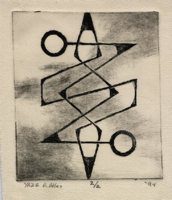Wisdom
Wisdom, according to the Merriam-Webster dictionary, is defined as the "1 a: Accumulated philosophic or scientific learning-knowledge; b: Ability to discern inner qualities and relationships-insight; c: Good sense-judgment d: Generally accepted belief challenges what has become accepted wisdom among many historians — Robert Darnton. 2: A wise attitude, belief, or course of action. 3: The teachings of the ancient wise men"Wisdom, Merriam-Webſter.
There are just three elements in universal reality: fact, idea, and relation. The religious consciousness identifies these realities as science, philosophy, and truth. Philosophy would be inclined to view these activities as reason, wisdom, and faith--physical reality, intellectual reality, and spiritual reality. We are in the habit of designating these realities as thing, meaning, and value.(196:3)
Most psychologists regard wisdom as distinct from the cognitive abilities measured by standardized intelligence tests. Wisdom is often considered to be a trait that can be developed by experience, but not taught.
When applied to practical matters, the term wisdom is synonymous with prudence. Some see wisdom as a quality that even a child, otherwise immature, may possess independent of experience or complete knowledge. The status of wisdom or prudence as a virtue is recognized in cultural, philosophical and religious sources. Some define wisdom in a utilitarian sense, as foreseeing consequences and acting to maximize the long-term common good.
As such, in general, wisdom is looked at his/her ideals and principles that govern all actions and decisions. Applications of personal wisdom include one's ethical and social guidelines in life that determines one’s unique style of personality, the particular nature of short and long-term goal(s) pursued in life (spiritual or materialistic for example), perspective on life, social attitudes, etc.
See also
External links
- Wisdom Lexicon Project
- Living Wisdom — A Research Paper about Wisdom
- Atlas of Wisdom: Wisdom in Psychology and Spirituality
- Where is the Wisdom We have Lost in Knowledge?
- Wisdom: The Interval Between the Notes
- From Knowledge to Wisdom
- Book on Wisdom from psychologist Paul Baltes
- Wisdom in Perspective
